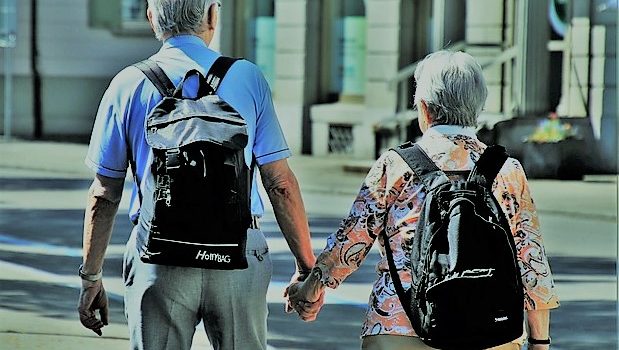Aging affects every body system, including the immune system. In this we are discuss about boost immune function in your golden years. People’s immune systems generally deteriorate with age, leaving them more vulnerable to illnesses and infections and experiencing shorter healing times. Nonetheless, there are a few tactics that can support immune system maintenance in older persons. This article examines the ways that aging affects immunity, the risk factors that go along with it, and doable strategies to help seniors’ immune systems stay strong.
How the Immune System Is Weaken by Aging:
The immune system’s ability to respond to threats is diminished as aging gradually damages it. As we age, the thymus, which produces T lymphocytes, becomes smaller. This reduces the body’s capacity to create fresh T cells, which help the body fight off infections. White blood cell activity also declines in older persons, which impairs their capacity to identify and eradicate dangerous germs. The immune system deteriorates with age, but older persons can take the appropriate preventative measures if they are aware of these changes.
A Higher Propensity to Contract Infections:
Due to their weakened immune systems, older persons are more susceptible to illnesses. Seniors are more likely to get common diseases including pneumonia, the flu, and urinary tract infections, as well as more severe cases of these infections. Because of their weakened immune systems, older adults frequently have trouble warding off diseases. For this age group, infections are especially deadly because of the combination of compromised defenses and long-term health conditions like diabetes and heart disease.
Vaccinations’ Significance for Immune Health:
Immunizations are essential for safeguarding the immune systems of senior citizens. Regular vaccinations, such the shingles, pneumonia, and flu shots, protect and shield elders from diseases that could be fatal. It’s possible that older persons’ immune systems don’t react to vaccinations as strongly as those of younger people. Vaccines still considerably lower the chance of developing a major illness, though. Encouraging elders to maintain current vaccines boosts their immune system as a whole.
Immune System and Nutrition in Elderly People: Boost immune function
In older persons, immune function is significantly impacted by proper nutrition. An immune-boosting diet that is well-balanced and high in vitamins and minerals can assist. Antioxidants, zinc, vitamin C, and vitamin D are among the nutrients that strengthen immune responses. Poor nutrition affects a lot of older persons because of things like decreased appetite, dental issues, or trouble making meals. Making sure your diet includes a range of fruits, vegetables, whole grains, and lean meats will give your immune system the vital elements it needs to keep working properly.
Exercise’s Significance for Immune System Health:
Regular physical activity helps to boost an older person’s immune system. Exercise increases blood circulation, which makes it easier for immune cells to travel throughout the body. Walking, swimming, or yoga are examples of moderate-intensity exercises that help lower inflammation and maintain the equilibrium of the immune system. Seniors who stay active also have better cardiovascular health, which boosts immunity all around. Including exercise in everyday routines strengthens the immune system and improves general well-being.
The Effects of Stress on Immunity:
Older persons with chronic stress have considerably weakened immune systems. Stress triggers the release of cortisol, a hormone that lowers the immune system. Long-term stress lowers white blood cell production, making the body more susceptible to infections. Seniors may be more stressed out because of health issues, money worries, or loneliness. In older adults, reducing stress with mindfulness exercises, social support, and relaxation techniques can strengthen immunity and enhance general health.
The Function of Sleep in Immune Response:
It is important to get enough sleep to keep the immune system strongand for boost immune function. Sleep disorders that are common among older individuals, such as insomnia or sleep apnea, can weaken immunity. During sleep, the body produces immunological proteins like cytokines, repairs cells, and strengthens its defenses. Due to the disruption of these processes, seniors who do not get enough sleep are more exposed to illnesses. Promoting healthy sleep practices, such as maintaining a regular bedtime and creating a relaxing sleep environment, can significantly improve immune function.
Handling Long-Term Medical Conditions:
In older adults, chronic illnesses such as diabetes, heart disease, and arthritis can impede immune function. These circumstances put stress on the immune system and lead to ongoing inflammation. Elderly people who have chronic illnesses frequently have compromised immune systems, which increases their susceptibility to infections. If chronic health conditions are treated with regular checkups, medication compliance, and lifestyle changes, their impact on the immune system may diminish. An active approach to illness management helps older persons maintain higher levels of immunity.
Conclusion:
The immune system naturally ages with age, leaving older persons more susceptible to illnesses and infections. Seniors can, however, take several preventative measures to boost their immunity. Immunizations, a healthy diet, regular exercise, stress management, and restful sleep habits all improve immune system health. Better management of chronic health concerns also reduces the burden on the immune system. Even while aging reduces immunity, older persons can still make decisions that will support their longevity and health by being aware of these changes. boost immune function in your golden years means old age years.
